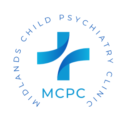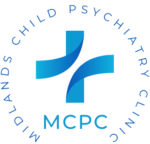- Awesome Services
Drug-induced Psychosis
- Drug-induced Psychosis
Explore How Can We Help You

Drug-induced Psychosis
Drug-induced psychosis can affect individuals of any age, including young people. The use of certain substances can have a particularly profound impact on the developing brain, potentially leading to acute psychotic episodes. Young people may be more vulnerable to the effects of substances due to the ongoing development of their neural pathways and brain structures. Here are some important considerations regarding drug-induced psychosis in young people:
- Susceptibility to Psychotic Effects:
- Adolescents and young adults may be more susceptible to drug-induced psychosis because their brains are still undergoing significant development, particularly in areas related to decision-making, impulse control, and emotional regulation.
- Types of Substances:
- Certain substances are more likely to induce psychosis in young people. For example, synthetic cannabinoids, hallucinogens, methamphetamine, and other stimulants can trigger psychotic symptoms.
- Impact on Brain Development:
- Substance use during adolescence can interfere with normal brain development and may increase the risk of long-term mental health issues. The use of drugs during this critical period can have lasting effects on cognitive function and emotional well-being.
- Dual Diagnosis:
- Young people with a history of substance use may be at an increased risk of experiencing both substance use disorders and psychiatric conditions. Dual-diagnosis cases require comprehensive and integrated treatment approaches.
- Social and Environmental Factors:
- Social and environmental factors, such as peer influence, family dynamics, and stressors, can contribute to substance use in young people. Addressing these factors is essential in preventing and treating drug-induced psychosis.
- Early Intervention:
- Early intervention is crucial in managing drug-induced psychosis in young individuals. Prompt identification and timely access to appropriate medical and mental health care can improve outcomes.
- Supportive Environments:
- Creating supportive environments at home, school, and within the community is essential for the recovery of young people experiencing drug-induced psychosis. This includes involving family members, educators, and mental health professionals in the treatment process.
- Prevention and Education:
- Educational programs that raise awareness about the risks of substance use, particularly during adolescence, can play a vital role in prevention. Providing accurate information about the potential consequences of drug use helps empower young people to make informed choices.
If a young person is suspected of experiencing drug-induced psychosis, it is essential to seek professional help. Medical and mental health professionals can conduct assessments, determine the appropriate course of treatment, and provide support for the individual and their family. Early intervention, ongoing monitoring, and addressing underlying factors contributing to substance use are crucial components of a comprehensive approach to managing drug-induced psychosis in young people.

